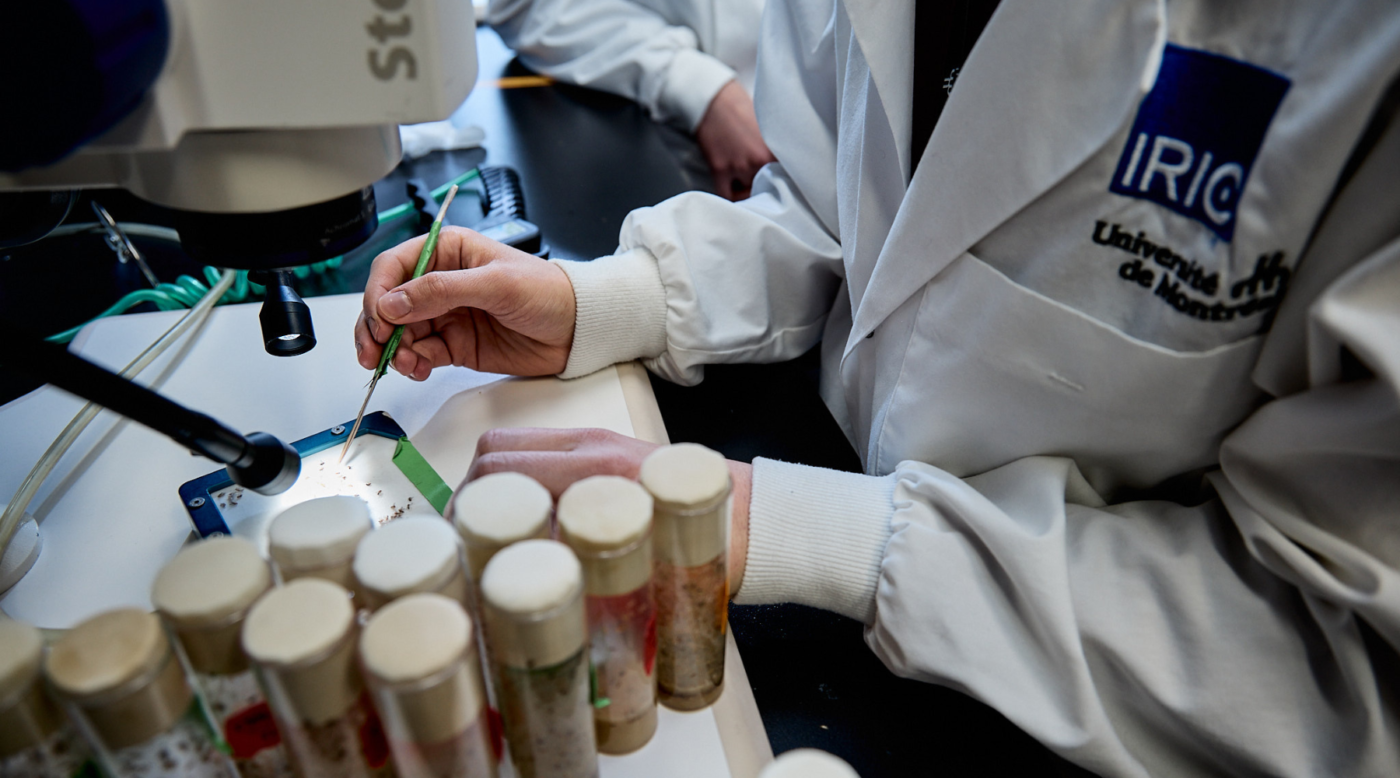News
Seventeen scholarships and grants from the Fonds de recherche du Québec awarded to IRIC members for 2023-2024
Published on May 13, 2024
The Fonds de recherche du Québec (FRQ) offers $53.2 million in training grants, $13.7 million in career grants and $52.8 million in research grants for a total of $119.7 million in new grants for the year 2024-2025. IRIC is proud to count several of its members among the winners of these competitions.
Congratulations to everyone!
Master’s scholarships, Fonds de recherche du Québec – Santé (FRQS)
- Nancy Aloysius, Sylvie Mader’s laboratory: $40,000 grant for her project entitled “Roles of Grainy head-like (GRHL) transcription factors in mammary epithelial differentiation”.
- Mateusz Checinski, Marc Therrien’s laboratory: $40,000 grant for his project entitled “Characterization of KSR2 in cancer cell migration and invasion”.
- Paola Mendoza Ramirez, David Knapp’s laboratory: $40,000 grant for her project entitled “Combinatorial effects of recurrent mutations in clonal hematopoiesis and leukemia”.
- Thomas Perreault, Marc Therrien’s laboratory: $40,000 grant for his project “Characterization of CNK3 scaffolding protein function in glioblastoma cell motility”.
Master’s scholarships, Fonds de recherche du Québec– Nature et technologies (FRQNT)
- Mateusz Checinski, Marc Therrien’s laboratory: $26,667 for his project “Characterization of KSR2 in cancer cell migration and invasion”.
Doctoral scholarships, Fonds de recherche du Québec – Santé (FRQS)
- Jamie Beaulieu, David Knapp’s laboratory: $83,333 for his project “Identification of genetic regulatory networks of self-renewal”.
- Alison Boutet, Gregory Emery’s laboratory: $16,666 for her project “Study of the ArfGAP1-regulated signaling pathway in collective migration in vivo“.
- Virginie Emond-Fraser, Vincent Archambault’s laboratory: $100,000 grant for her project entitled “Cellular and molecular functions of phosphatases during mitosis in Drosophila”.
- Lucas Porras, Geneviève Deblois’ and Sylvie Mader’s laboratories: $66,666 for his project entitled “Study of the contribution of EZH2 activity in the metabolic reprogramming of triple-negative breast cancers”.
- Basile Rambaud, Sébastien Carréno’s laboratory: $16,666 for his project “Study of the role of Slik and the dSTRIPAK complex in cytonem biogenesis”.
Doctoral scholarships, Fonds de recherche du Québec – Nature et technologies (FRQNT)
- Simon Chasles, François Major’s laboratory: $100,000 grant for his project entitled “Machine learning to model microRNA- mRNA interaction networks and their interference on protein production”.
- Virginie Emond-Fraser, Vincent Archambault’s laboratory: $100,000 grant for her project entitled “Cellular and molecular functions of phosphatases during mitosis in Drosophila”.
- Regina Strakhova, Matthew Smith’s laboratory: $66,667 for her project “Functional study of RAS GTPases at the atomic level in living cells using NMR spectroscopy”.
Postdoctoral fellowship, Fonds de recherche du Québec – Santé (FRQS)
- Yann Chappe, Michel Bouvier’s laboratory: $90,000 grant for his project “HOPE-IOID: Regulation and modulation at different levels of the opioid system by the novel opioid peptide scavenger ACKR3”.
Career grant, Fonds de recherche du Québec – Santé (FRQS)
- Geneviève Deblois, Director of the Metabolic and Epigenetic Alterations in Cancer Research Unit at IRIC, has been awarded a $286,986 grant for her project ” Study of metabolic and epigenetic adaptations to microenvironmental stress and drug resistance in breast cancer “.
- Vincent Q. Trinh, Director of the Digital Histology and Advanced Pathology Research Unit at IRIC, receives a $123,415 grant for his project “The impact of fibroblasts on the malignant transformation of dysplastic stem cells in pancreatic tumours”.
Research grant, Fonds de recherche du Québec – Nature et technologies (FRQNT)
- David Knapp, Director of the Cellular Engineering Research Unit at IRIC, obtains a research grant of $29,062 for the project “In vitro modeling of leukemic mutations associated with aging and their microenvironmental interactions”.
